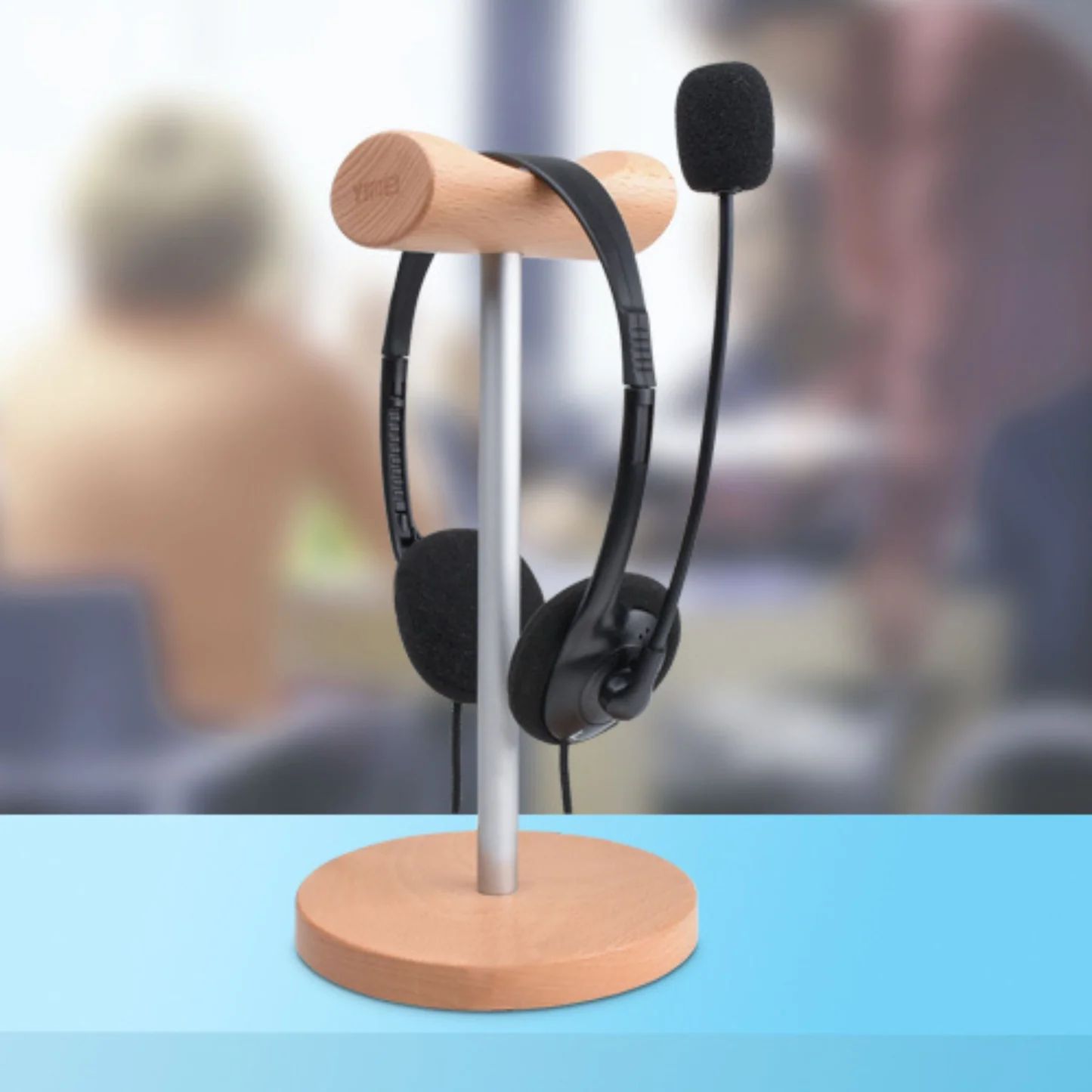The modern age of language learning is here, and language learning software is your best option. Many people around the world need to or want to learn a new language, but their busy schedules and constricting resources prevent them from attending language classes.
Perhaps you are a language learner who wants to see significant progress in your language skills for school, work, or for your own personal development. Regardless of your purpose, there is a variety of language learning software that can help you learn the language quickly and efficiently. Learning English, French, Greek, or any other language has never been more accessible, convenient, and engaging with the best language learning software.


What Is Language Learning Software?
Language learning software is a tool designed to help people learn, increase their knowledge, and maintain their foreign language skills. There are a wide variety of language learning tools available; some of them are free while some require premium subscriptions. More often than not, the distinguishing factor between free and paid-for services is that the latter offers more detailed learning modules. They also offer options for custom-fit training depending on the learner’s level of language proficiency. On the other hand, free language learning software tends to offer generic modules. Most software offers the choice between a desktop or mobile application.
Many language learning programs rely on an audio-lingual approach, which begins with the basics such as vocabulary building and translating exercises. Most programs are able to test your level of proficiency and then adapt to that level. These tests often drill the same words that you get wrong over and over again until you’ve mastered them. This applies recycling and repetition, which are core elements for most language learning apps.
The Best Language Learning Software Today


Learning a new language is never easy, but it can be easier with the right mindset and the right tools. But before you even start, picking the right tools to help you out can be crucial. What language do you want to learn? Are you a beginner or already on your way to mastering this new language? How many weeks, days, or months can you dedicate to learning the language?
These questions are important in setting goals for your language learning project, and it’s also crucial for when you have to look for the right tools. Luckily, we’ve uncovered some of the most reliable, affordable, and user-friendly language learnings apps available to help you on your language journey.
Duolingo


Duolingo is a freemium-type language learning app used by many people around the world. Mobile users love its user-friendly interface and handy format, which they can take with them on the go. Its features are easy to follow even for teens or children, and the lessons are not hard for all beginners to follow regardless of your age.
Duolingo has one of the largest collections of interactive programs per language available in the world, featuring over 90 different language courses in over 20 different languages. The software provides 36 different languages taught in English, which is its most popular medium of instruction. Many users also appreciate that most of the lessons on Duolingo are self-paced, which allows users to choose how much time they want to allot per section. The software saves the section where you left off to return to it anytime you want.
The software’s self-paced nature is great for people with hectic schedules and has the need to learn a language quickly within a brief period. But like most freeware available, Duolingo also comes with its own set of limitations. That includes having limited grammar instructions and a lack of speaking or interactive practices. That means you will need to rely on external software to train yourself on grammar and actual conversational language.
Better yet, you can follow the experts and take Duolingo in conjunction with external resources to make your language learning more comprehensive. Duolingo is designed as freeware more than anything, which means you only ever need an account to access the software. However, Duolingo also features some advanced features that have been locked for premium subscribers. Users who want to take the premium route can opt for monthly, biannual, or annual subscription options.
Rosetta Stone


Rosetta Stone is a full-featured, premium software with a decades-long reputation in the language learning field. It’s arguably one of the best programs available for beginners who want to develop a strong base of vocabulary and grammar for any specific language they are trying to learn. The software is easy to work with and provides excellent content that anyone can follow. The software also provides a generous compilation of languages available for study, with a total of 21 languages in all.
Language learning using Rosetta Stone mostly relies on doing exercises that require deductive reasoning. For example, the program will pronounce the word a few times and you will see a picture of a vase. You might hear a new word on the next round and see pictures of a vase and something else. There’s also a lot of drill-and-kill teaching that will present different tests on the same word to ensure mastery. They’ve also added a new angle that asks you to choose which type of vocabulary you need. The options are for travel, work, family, and basic vocabulary.
The pricing for Rosetta Stone tends to be higher than other language programs, but there’s a valid reason for this. Rosetta Stone only gets you access to one language, but now when you buy a one-year, two-year, or even lifetime subscription, you will be given access to all the languages in the catalog.
Before online platforms became popular, Rosetta Stone software used to be available exclusively in CD format, but now you can access all of its programs online via computer or mobile app. You also have the option to add online tutoring to individual courses. You can opt to join group sessions or schedule private sessions with tutors. The lessons are downloadable through the mobile app or for offline use.
HelloTalk


HelloTalk is a language learning mobile app with a cool twist. The software gives you a direct line with native language speakers from all over the world, with whom you can text and speak. Many websites connect you to other people, but HelloTalk is the only one to alternate as a language learning software. The software makes it easy for learners to find a conversation partner. And like other social media, the software has chat, voice message, and call functions.
There are also other tools like an in-app highlighter and tools for saving references such as videos and images. But the most important set of tools offered by the app are the language learning-specific features. These tools include translation, transliteration, and voice recognition to help you write/speak your target language. Unfortunately, these advanced language translation features only come with the paid version of the app.
HelloTalk supports more than 150 languages. You can also refine your tutor search by age or country. In return, you need to help others learn your language. The basic idea lets you talk to native speakers and be immersed in the language. The software also lets you chat in several languages at the same time, as all chats are readily displayed on the home screen. HelloTalk is similar to WhatsApp in many ways, except that your list of friends is helping you learn languages.
HelloTalk is available as a mobile app compatible with Android and iOS, and as a desktop app. The app is available for free download, but you’ll have to upgrade for the language tools. Calling your friends into the app also entitles you to three months’ free membership.
Babbel


Babbel is another language learning software that’s popular for its unique content per language program that comes at reasonable costs. The program offers both web and mobile apps that can help learners practice a new language at their own pace. The software also features podcasts in different languages for various levels of learning. It’s also very friendly towards complete beginners due to its offering of high-quality lessons that are uniquely suited to each language.
The software offers interactive exercises that tend to be more tedious and challenging than other language learning software, but they are extremely effective for ensuring that the learner has absorbed the lessons. The software will present you with not only words but also concepts and phrases that are culturally and linguistically relevant. If you like a bit of challenge when learning, then this program is for you.
Babbel offers a total of 13 languages with English as the language of instruction. You can learn Danish, Dutch, French, German, Indonesian, Italian, Norwegian, among others. Non-English speakers can also learn English with modules programmed with their native language as the medium of instruction. There are English lessons in French, German, Italian, among others. Suppose you already have experience in the language you want to learn, you can take a placement test, and Babbel will assign you to the appropriate level.
Babbel offers a brief trial period for beginners. But be warned that this trial period is rather short, after which you have to upgrade to a paid version. A paid membership gives you unlimited access to the language program that you choose on both desktop and mobile apps. Leaners who opt for the annual or biannual mode of payment often get large discounts.
Mango Languages


Mango Languages is another popular language learning software offering high-quality lessons for beginners to intermediate learners. The software offers a noticeably intuitive interface with a simple and easy-to-understand structure. There are huge amounts of content available for popular languages. If you do it right, the course just might prepare you for full-blown conversations in that new language. The program offers a lot of drilling to prepare learners to start speaking fast in a natural environment.
Each course is uniquely designed to highlight the most important aspects of the language. In essence, the phrases students learn are based on the actual usage of phrases and words in conversation, which makes them rather intuitive. There’s also a digital coach to teach you how to pronounce words or prompt you to perform certain tasks. You can also check your own pronunciation using interactive features.
Each language course is divided into units, with each unit having several chapters with several lessons. Each lesson begins with words followed by sentences then phrases. The lessons are arranged in a laddered manner, which means that they must be taken up in chronological order. There’s also a helpful sub-section for each language that will teach you about an important aspect of culture. For example, there are sub-sections on wine and cheese for French and flamenco dancing for Spanish.
Mango Languages offers a two-week trial before you have to upgrade to a paid subscription. Individual users can choose between a single or multiple language subscription. There’s also a commercial option that lets users customize their subscriptions for business use. Mango Languages software was designed primarily for beginners and intermediate learners, which means that advanced learners looking for advanced lessons might want to look elsewhere.
Memrise


Memrise is a simple and easy-to-use language learning software for beginners. The program offers a hefty amount of content for foreign languages. Each course material or lesson follows a chronological learning path for you to follow through. The lessons are divided into chapters, with each chapter presenting you with unfamiliar words and phrases in a flashcard style. The software makes use of mnemonics and spaced reputation to facilitate learning. There are Speed Reviews at the end of each chapter, which are like timed short quizzes to test your knowledge of the lessons. The app tracks your scores for the quizzes. Memrise is particularly useful for online language learning, but it also offers other categories of learning, such as Math and Science. Besides that, it also offers user-created content developed by community members from around the world.
The Memrise software features its own goal-setting tools in the form of a calendar and timer. You can use these to set how many minutes per day you want to study. The app can also keep track of and notify you of your progress. Aside from teaching vocabulary words and phrases, the software also features a creative space where you can create your own memory tools or mnemonics to help you remember what’s being taught. You can also tap into the mnemonics that other users have created.
Memrise is available both as a web app and as a mobile app compatible with Android and iOS devices. You can sign up for the program using either a Facebook or Google account. But it also offers the option for an upgrade to unlock additional features.
Voxy


Voxy is an online language learning software that provides personalized and adaptive language curriculums for language learners. It’s an artificial intelligence (AI)-powered language solution that uses algorithms to determine the best approach for teaching.
Traditionally, the responsibility of creating learning materials and lesson plans has always fallen onto the shoulders of individual teachers and curriculum planners. The problem with this model is that the materials they create can be too generic and may not be able to address the unique needs of each student individually. Voxy addresses this issue by creating a tool that quickly allows curriculum developers to transform authentic English-language materials into effective learning objects. This is done by automating the identification of keywords that will best help learners understand the meaning of a text. The use of algorithms can be very helpful for creating customized content that fits well into the individual needs of learners.
The teaching methods Voxy uses include a particular method using collocations. Collocations are common phrases or word pairings that are most relevant to non-native speakers as a teaching tool. When learners study using relevant materials tailored to their personal needs, they are much more likely to fully absorb the lessons.
Voxy is available both as a desktop and mobile app compatible with most operating systems and Android and iOS devices. A basic subscription for an organization costs $60 per month or $720 per year.
Fluenz


Fluenz is a language learning program that adapts to the learning needs of the user. This software feels more like attending a private language class than anything. Most of the lessons are pre-recorded videos of a language instructor. The videos teach vocabulary, grammar, among other things. The software also goes to lengths to explain grammar or break down the meaning of a word, which not all software is able to do. There are also loads of content to keep you occupied for a long time.
The software is an impressively well-rounded app best for learning a language as a beginner. It teaches you how to speak, hear, and write the languages of your choice. Unfortunately, the software offers a limited selection of languages, with only seven languages that you can learn. Nonetheless, it does cover some of the most popular languages like French, Chinese, or Italian.
Fluenz is a great app if you want the medium of instruction to be in your native tongue. Not all language learning applications are able to do this. The software breaks down each language program into five separate levels. The only exception would be Mandarin, which only has three levels.
The software is available mainly as a mobile application compatible with Android and iOS devices. Fluenz costs anywhere from $187 to $408 for a one-time payment. The more levels included in the package, the higher the cost. The pricing package is slightly more expensive than the ballpark range, but not excessively so. Suppose you encounter any language that isn’t available on Fluenz. In that case, you can always turn to its best competitors with a wide variety of offerings, including Duolingo and Rosetta Stone.
Pimsleur


Pimsleur is an audio-based language learning software with a large language offering. It’s probably the only software in the market to focus solely on the auditory component of learning for language instruction. The program makes use of the auditory “Pimsleur Method” of teaching languages. This teaching method and the software got their name from Dr. Paul Pimsleur, a recognized expert in linguistics. It requires learners to listen to audio lessons for up to 30 minutes a day for a total of 30 days per level. Each language program has five levels. This would take approximately five months for a learner to complete a single language program. The efficacy of auditory inputs for short-term and long-term recall in humans is also well-documented in scientific studies worldwide.
The major downside to auditory-based software is that it won’t teach you how to read and write the language. It also lacks interactive exercises and games. Even then, the software offers a superb learning structure, not to mention a wide variety of language offerings. The program offers a total of 50 languages, with English as the primary mode of intrusion. Non-English speakers who want to learn English will also enjoy their selection of English courses in 14 different languages.
The Pimsleur courses are accessible in a variety of ways. The first is by downloading the mobile app on any Android or iOS device. You will then need to purchase a language program to get started. Another way to access Pimsleur courses is by purchasing downloadable MP3 files or CDs that contain the same courses as the audio sessions.
How Does Language Learning Software Work?


The first step toward starting a language learning program is choosing the language you want to learn. Once you have chosen a language, a virtual teacher may present a series of modules that you will have to get through over the course of your study. Each module will present you with a series of words and images that will teach you basic words to build your vocabulary. The words and images get progressively harder as you go along. Then come the tests at the end of each module that may involve matching words, conversation in practice, or dictating specific words. Most software programs use audio-drilling, a testing technique that drills the learner again and again on the proper meaning and usage of words.
Select software has built-in speech recognition tools that can recognize your pronunciation. Most are embedded with algorithms that can detect whether a learner got the correct answer for a specific item or not. A review software may be present to remind users when words and phrases need to be reviewed, and more often than not, these are words it detected that you got wrong on the tests.
Other types of software offer downloadable audio lessons that you can keep for life after purchase. But the cream of the crop is the live consultations with language teachers who speak the language you are learning. Because as language experts have pointed out, practice in conversation with a native speaker is key to learning any language.
Device compatibility varies per device, but most software is compatible with multiple devices, including tablets, smartphones, and computers. Most language-learning software is also self-paced. This means the software will keep track of your progress along the way, so you can stop at a lesson and then pick up right where you left off.
The Dilemma With Automated Learning Tools


Most language learning software relies entirely on a software-based learning approach. This means that over the complete course, the learner only interacts with a digital program or digital assistant. While there’s nothing wrong with automated tests for learning new vocabulary words and improving sentence structures, the complete lack of human interaction in most software may not help much when it comes to learning how to converse in that language. You don’t have to be an expert in the field of language to know that the conversational aspect of learning is something that you need to do with the help of another person. There are people with the ability to pick up on languages without the help of another person and then pull it off in actual conversations. But for ordinary speakers, relying on language learning software alone is likely to lead to embarrassing and disastrous events.
While we don’t have a problem with self-learning tools, don’t be misled by the idea that these programs are a complete solution to language learning in itself. This is why select language learning software has also incorporated conversational teaching with professional language teachers who will converse with learners and give them immediate feedback. Most language experts would recommend using language learning software as a supplement to language classes or as a starting point to language learning, but they don’t recommend it as a complete substitute.
Because let’s face it, not a single app can get you speaking English, French, or Spanish fluently. The best option would be to use language learning software alongside traditional techniques like enrolling in language classes or making friends with native speakers, among others. Like with any project, the learner must set reasonable and achievable goals and exert plenty of effort across time.
Why Is It Important to Learn a Foreign Language?


Learning a new language has many potential benefits both for personal development and in terms of improving one’s career prospects. The intellectually curious individuals do it for the intellectual challenge, while there are others who do it to improve their career prospects and to enhance their work experience. Most companies nowadays have expanded their services overseas, with clients who are as diverse as the numbers of languages available to man. Candidates who can speak foreign languages appear more capable and reliable than the average candidate.
Learning a new language is also an important method for keeping the human brain sharp regardless of the person’s age. There are plenty of scientific studies supporting the idea that learning a new language is like an exercise for your brain and increases the grey matter therein, which is the part of the brain that processes information. The mental effort required to build up a vocabulary from scratch and then to converse in an entirely foreign language is the very thing that helps to improve the learner’s ability to concentrate. It also improves memory. And a deeper look into the mechanics and structure of a foreign language may also help you understand your native language better.
When you’re learning a new language, you will often be forced to pay attention to the order of the words, verb tenses, and speech parts. This conscious approach towards language may help you become more aware of your native language and how all languages come together. Not only that but studying a language may also enrich your own philosophies in life. This is because language immerses you into a completely different culture, and that culture becomes a part of you when you speak their language. There is also the practical consideration of speaking with locals if you’re traveling abroad.
Final Thoughts on the Best Language Learning Software


Learning a new language is never an easy task, but having the right tools can make a lot of difference. And of course, every student must exert significant time, effort, and concentration on any learning task. This is also why it’s important to find applications that you like. Because you’ll need to spend hours upon hours practicing using the software. No one wants to waste their hard-earned money on software that can’t give you exactly what you need.
But then again, remember that most of this software is not a complete solution in itself. It’s best to use language learning software as a supplement to language classes or regular conversations with native speakers. And if you’re thinking of putting off learning a new language, remember that today is the best time as any. So buckle up and learn!
Also, check out this list of the best deep learning software for innovative applications.



























